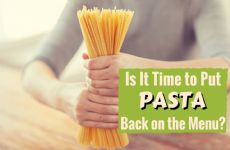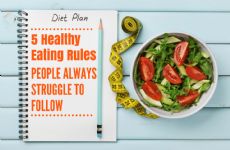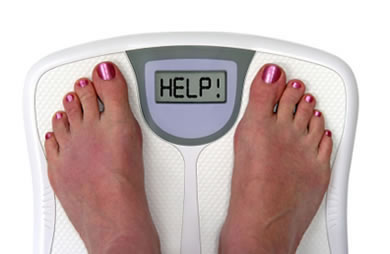|
They say variety is the spice of life, but most of us are creatures of habit. When we find a food we enjoy, we tend to stick with it. SparkPeople member ROSEWAND eats the same thing for breakfast every day: steel-cut oats with blueberries, half an English muffin with a little jam and tea. And for lunch, WAN2BHIKING always has a big salad with veggies, craisins and pine nuts topped with leftover chicken or tofu. There are plenty of reasons why someone might want to cook, eat and repeat the same meals over and over. Of course, there's the obvious: It tastes good. And then there's the convenience factor—when you are practiced at preparing a certain food, it becomes quicker and easier to whip up, and you don't need to have dozens of ingredients on hand for multiple meals. But for followers of the so-called mono diet, eating the same foods is purportedly a way to boost weight loss. What Is the Mono Diet?Just as it sounds, people on the mono diet eat only one food for several weeks in order to shed pounds faster. There are many different types of mono diets, depending on the food of choice. Some might follow an egg mono diet, a banana mono diet or even a potato mono diet. Why does it speed up weight loss? Limiting a diet to only one food will inherently cut down on the total amount of calories consumed. It can also trigger a loss of water weight and reduced bloating. But as experts agree, extreme, immediate weight loss isn't likely to last. Becky Hand, registered dietitian with SparkPeople, has had a few clients who have requested her services regarding the mono diet. She always starts by asking what interests them most about the diet. "I've discovered that clients are intrigued with the diet because of its ease and simplicity—just eat the same few foods over and over again," she says. "Digging deeper, I usually discover that the client is also interested in overall health, but doesn’t know how to combine the two concepts of easy and healthy." That's when Hand helps her client to brainstorm ideas. By the end of the session, they have designed at least 10 meals that meet the client’s food preferences, can be prepared in five minutes or less and are much more likely to meet their nutritional needs. Why Avoid the Mono Diet?At first, eating one thing seems like a super simple way to kick-start weight loss without the hassle. We get it: There's no need to select a variety of meals, make long grocery lists or spend hours cooking each week. But the reality is that over time, it becomes tiresome for most people to sit down to identical meals, day in and day out. And if you consistently deprive yourself of the other foods you enjoy, you may be more likely to crave them in abundance. More importantly, when you deprive your body of the calories it needs to function at full capacity, you'll become more likely to succumb to overindulging and maybe even binge-eating, which can lead to regaining any lost weight. As if that’s not bad enough, studies have shown that low-calorie diets can cause stress levels to skyrocket. It's also impossible to get all of the nutrients you need from a single food. A nutritious, well-rounded diet consists of the three key macronutrients: protein, fat and carbohydrates. You simply cannot get that if you're eating only bananas, sweet potatoes or carrots for every meal. In the case of comedian and magician Penn Jillette, he kicked off his weight loss with a mono diet that consisted of only potatoes for two weeks. As NBC News health and nutrition editor Madelyn Fernstrom told "Today,” while Jillette may have lost weight quickly due to his extremely limited intake of 600 to 700 calories per day, he was also depriving himself of protein, which can impact everything from energy levels to muscle strength to brain function. Registered dietitians and nutritionists agree that the mono diet is a bad idea. "Yes, this diet can produce weight loss,” Frances Largeman-Roth, a registered dietitian and author of "Eating in Color," told The New York Post. “But the weight loss is a result of caloric restriction—not because any particular food is magically producing weight loss. It’s an incredibly restrictive and unbalanced diet and I do not recommend that anyone follow it.” Experts also caution that the mono diet can lead to a loss of muscle, sluggish metabolism, fatigue and perhaps even malnourishment. In most cases, any weight that is lost initially will be regained after returning to a normal diet. Healthy Alternatives to the Mono Diet
|
Related Entries
More From SparkPeople
|




.jpg)

















